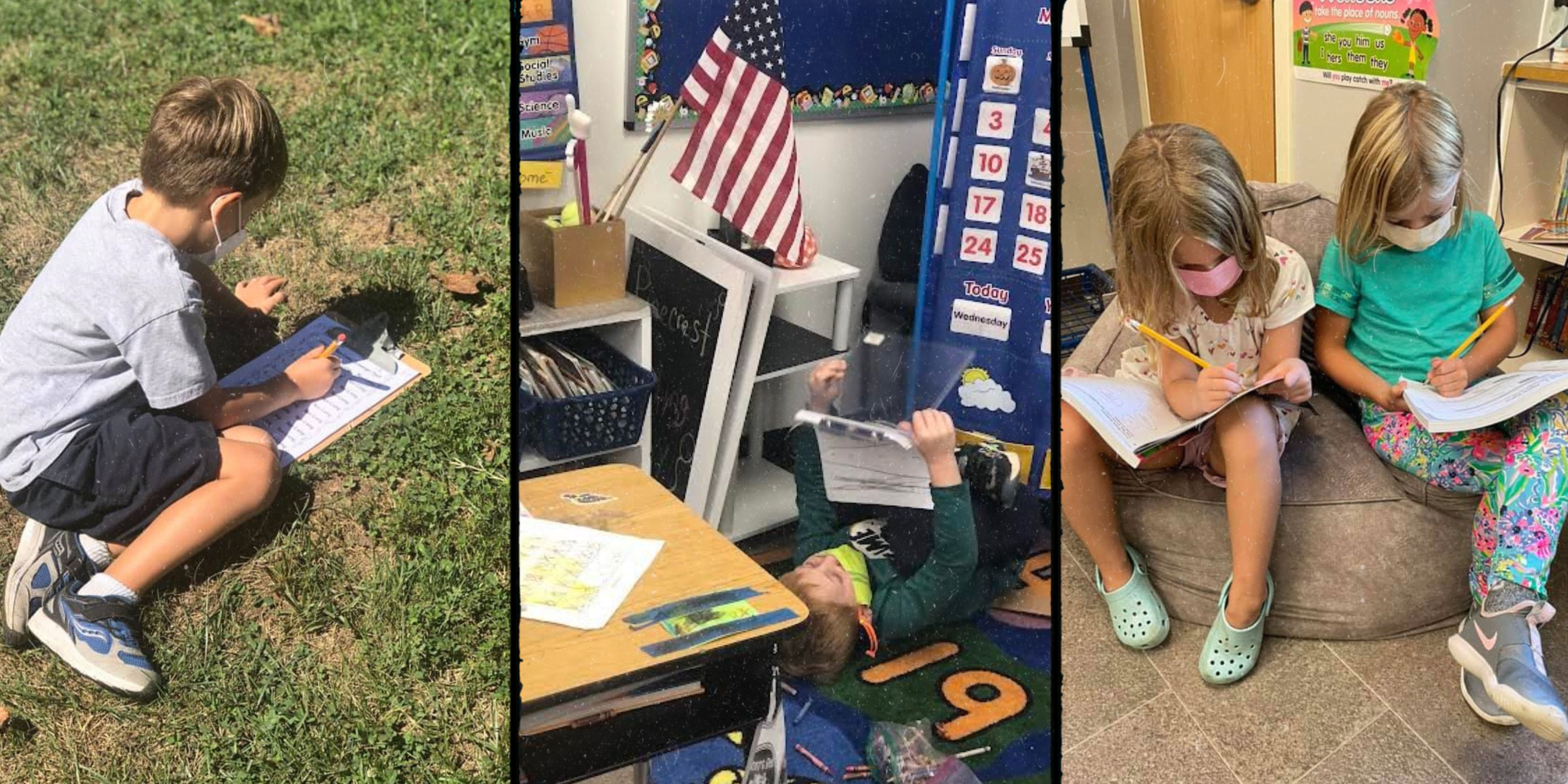Pinecrest School values flexible learning. Flexible learning within Pinecrest, a small Fairfax county private school, looks like differentiated and yet collaborative learning embedded within the school culture. For example, when walking through the halls of Pinecrest, it’s not uncommon to witness some students working on the rug while others are at their desks and then others may be seated on a wobble stool. Speaking to this, Head of School Ms. McDermott talked about recognizing that being engaged looks different for different students and that there is no one size fits all especially at our Annandale private school and early childhood program. “It doesn’t matter how they are engaged, just that they are,” she said.
What is flexible learning?
Flexible learning is an educational commitment grounded in learning theories, philosophies, and methods that creates a classroom with “increased choice, convenience, and personalization to suit the learner” (Joan, 2013). Flexible learning expands into different areas of learning, including flexible physical spaces, flexible time, and all in all, devotion to the personalization for each student.
Flexible physical spaces:
Children have a developmental need for movement, and flexible physical spaces allow the student to develop this need. For example, within Pinecrest at all grade levels from preschool through sixth grade, you will find classrooms equipped with school furniture and areas that enable the students to shift positions. “Spaces that are flexible, accommodating different approaches and uses, improve the odds for effective learning” (Oblinger, 2006). Additionally, the classrooms are student-centered, where students have access to materials that are available when needed to enhance the learning experience or for creative moments.
Flexible time:
Pinecrest School is a fully accredited private school in Annandale; therefore, it has best practices and curriculum, but not necessarily bound to state standards. Meaning, teachers can do things differently based upon the needs of students. For example, the science curriculum in a classroom at our Annandale private school may outline one week spent on birds in a unit. However, the students may become deeply interested in this topic. Therefore, the teacher can extend the unit based on interest. Pinecrest is attentive to teaching the students who are right in front of us.
Flexible learning means personalized learning:
The small class sizes at Pinecrest create classrooms with personalized features. A study by the Rand Corporation indicates “that compared to their peers, students in schools using personalized learning practices are making greater progress for two school years, and that students who started behind are now catching up to perform at or above national averages.” With small class sizes, students can build strong relationships with their classmates and teachers. The teacher-student relationship is essential as teachers can listen and observe students’ experiences to align resources and instruction to best fit the learners’ needs. Additionally, the relationships with peers are vital for social-emotional learning and create a psychologically safe space where students feel comfortable taking risks that ultimately improve their understanding.
To conclude, research shows that flexible learning is an educational best practice. Pinecrest School is devoted to exceptional learning, providing students with a strong foundation of core academic subjects with an equal commitment to social-emotional learning, and incorporating student-focused differentiated methods.
Join us for a private school Open House to learn more about flexible learning and the dynamic education program at Pinecrest. Contact us now!
Works Cited:
Joan, D. (2013). Flexible Learning as New Learning Design in Classroom Process to Promote Quality Education. Journal on School Educational Technology.
Oblinger, D.G. (2006) Space as a change agent. In D.G. Oblinger (Ed.), Learning Spaces. (p.1.1-1.4). EDUCAUSE.
Pane, J., Steiner E., Baird, M. , Hamilton, L. (2015). Continued Progress: Promising
Evidence on Personalized Learning. RAND Corporation,
https://www.rand.org/pubs/research_reports/RR1365.html.
